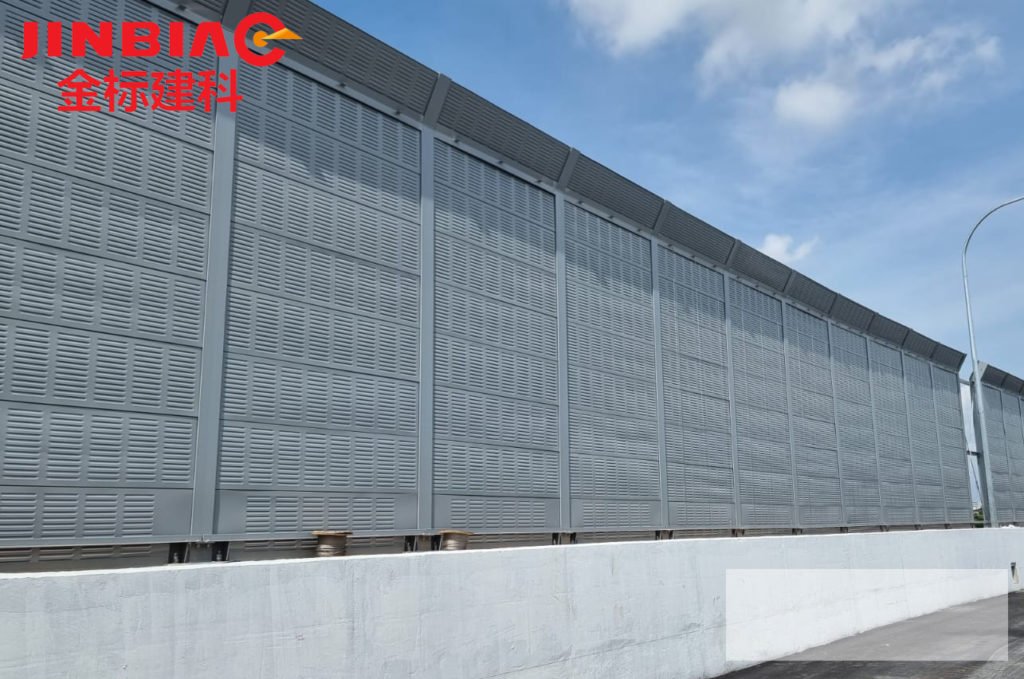
Noise pollution is a major concern in construction, industrial sites, and even busy urban areas. If you’re trying to shield workers from excessive noise or prevent disruption to surrounding communities, choosing the right type of noise barrier is crucial. But with options ranging from portable noise barriers to permanent installations, how do you decide which one is the best fit?
The Case for Portable Noise Barriers
Portable noise barriers, also known as temporary noise barriers, are designed for flexibility and ease of use. They are lightweight, movable, and can be installed quickly in areas where noise control is needed on a short-term basis.
Advantages of Portable Noise Barriers
- Flexibility and Mobility: One of the biggest perks of portable barriers is that they can be repositioned as needed. This is especially useful on dynamic construction sites where work areas shift regularly.
- Quick Installation: Unlike permanent barriers that require significant planning and construction, portable barriers can be set up in a matter of hours or days.
- Cost-Effective for Short-Term Projects: If your project will only last a few weeks or months, it may not make sense to invest in a permanent noise barrier. Portable options provide a budget-friendly solution.
- Adaptability to Different Environments: These barriers can be used for a variety of applications, from roadwork and demolition sites to temporary events and festivals.
Drawbacks of Portable Noise Barriers
- Limited Noise Reduction: While effective, portable barriers may not provide the same level of noise reduction as their permanent counterparts. They often lack the density and height needed to fully block sound.
- Durability Issues: Being lightweight and designed for mobility means they may not withstand extreme weather conditions as well as permanent structures.
- Security Concerns: Because they are temporary, they may not provide the same level of security or stability as a fixed installation.
The Strength of Permanent Noise Barriers
Permanent noise barriers are built to last, offering long-term noise reduction solutions for industrial zones, highways, and fixed construction sites. They are designed to blend into the landscape while effectively blocking or absorbing sound.
Advantages of Permanent Noise Barriers
- Superior Noise Reduction: Permanent barriers are typically constructed with high-density materials such as concrete, steel, or composite panels, providing better sound attenuation.
- Long-Term Cost Savings: While the upfront costs are higher, permanent barriers require less ongoing maintenance and replacement compared to portable options.
- Greater Structural Integrity: These barriers are built to withstand harsh weather conditions, making them a more durable choice for industrial and highway applications.
- Aesthetic Integration: Many permanent noise barriers can be customized to match the environment, offering a more visually appealing solution compared to temporary barriers.
Drawbacks of Permanent Noise Barriers
- Higher Initial Cost: The installation process involves planning, materials, and labour, making it a significant investment.
- Limited Flexibility: Once installed, these barriers cannot be moved or adjusted if noise conditions change.
- Longer Installation Time: Unlike portable barriers that can be deployed quickly, permanent noise barriers require construction time, which may cause delays in project timelines.
Noise Barrier Construction: Choosing the Right Option
When it comes to noise barriers, the right choice depends on your specific needs:
- For short-term projects or areas where noise sources frequently change, Portable noise barriers are the way to go. They offer flexibility, quick deployment, and cost savings for temporary applications.
- For long-term noise control in fixed locations, Permanent noise barriers provide better sound reduction, durability, and long-term value. They are ideal for infrastructure projects, industrial sites, and highway applications where noise pollution is a consistent issue.
Finding the Right Balance
In many cases, the best solution isn’t choosing one over the other but using a combination of both. For example, a construction project near a residential area might benefit from installing permanent noise barriers along the property boundary while using portable barriers to control noise in different work zones as needed.
Ultimately, selecting the right noise barrier depends on factors such as budget, project duration, noise reduction requirements, and site conditions. By carefully considering these elements, you can ensure a quieter, more productive, and compliant work environment.
Need help deciding which noise barrier is right for your site? Assess your noise control requirements and choose the option that aligns with your long-term or short-term needs!
Hebei Jinbiao is a leading company in Noise Barrier products and Fencing products in Singapore. We guarantee to provide you with the most high-quality Sound Barrier and Fencing products along with our dedicated assistance. Do not hesitate to contact us. We are looking forward to helping you solve your noise issues, safety issues and protecting you from noise pollution as well as ensuring your safety.
